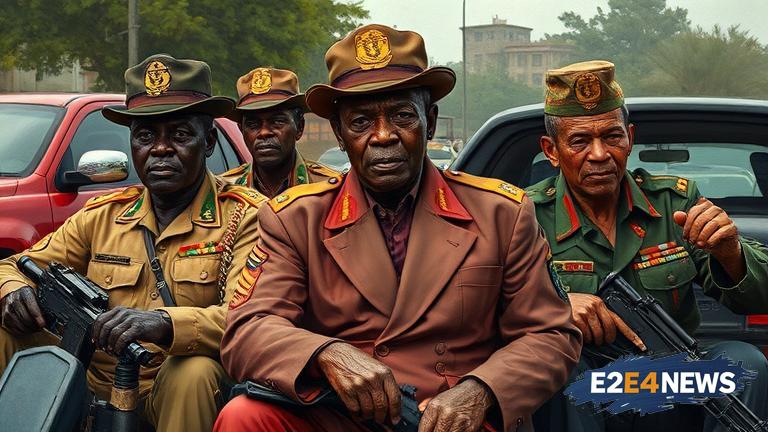The scandal surrounding the allocation of cars and bribes to war veterans in Zimbabwe has taken a dramatic turn, with new revelations emerging that suggest a deep-seated culture of corruption and abuse of power. According to reports, high-ranking government officials and politicians have been implicated in the scandal, which has sparked widespread outrage and condemnation from the public. The controversy began when it was discovered that a large number of cars had been allocated to war veterans, allegedly as a form of compensation for their services during the country’s liberation struggle. However, it soon became apparent that many of the beneficiaries were not genuine war veterans, but rather individuals with connections to powerful politicians and government officials. The scandal has also raised questions about the use of public funds, with allegations that large sums of money were used to purchase the cars and pay bribes to officials. The government has been accused of mismanaging the program and failing to ensure that the benefits reached the intended recipients. The opposition has seized on the scandal, calling for a full investigation and the prosecution of those responsible. The war veterans themselves have also spoken out, expressing outrage and disappointment at the way the program has been abused. Many have called for the resignation of top officials and the implementation of reforms to prevent similar scandals in the future. The scandal has also highlighted the broader issue of corruption in Zimbabwe, which has been a major obstacle to the country’s development and economic growth. The government has pledged to take action, but many are skeptical about its ability to tackle the problem effectively. The international community has also been watching the situation closely, with some donors and investors expressing concerns about the country’s commitment to transparency and accountability. The scandal has also had a significant impact on the country’s reputation, with many Zimbabweans feeling embarrassed and ashamed by the actions of their leaders. The media has played a crucial role in exposing the scandal, with many journalists and editors facing intimidation and harassment from government officials and politicians. Despite these challenges, the media has continued to push for accountability and transparency, and its efforts have been widely praised by the public. The scandal has also sparked a wider debate about the role of war veterans in Zimbabwean society, with some arguing that they have been used as a tool for political patronage and manipulation. Others have called for a more nuanced approach, recognizing the sacrifices and contributions made by genuine war veterans while also addressing the corruption and abuse that has occurred. The government has announced plans to launch an investigation into the scandal, but many are skeptical about its ability to deliver justice and accountability. The opposition has called for an independent inquiry, arguing that the government cannot be trusted to investigate itself. The scandal has also raised questions about the country’s electoral system, with some arguing that the allocation of cars and bribes was a form of vote-buying. The Zimbabwe Electoral Commission has been accused of failing to prevent the abuse of state resources for political gain. The scandal has also had a significant impact on the country’s economy, with many businesses and investors expressing concerns about the stability and transparency of the government. The international community has called for reforms and greater transparency, and the government has pledged to take action. However, many are skeptical about its ability to deliver on these promises, and the scandal is likely to continue to dominate the headlines for some time to come.
